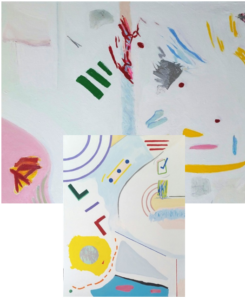2022 Veteran Voices: Painted Realities
Veteran Art Institute is proud to present:
VETERANS VOICES: PAINTED REALITIES
Painted Realities is an exhibit that was created during the height of the Covid – 19 lockdown by African American Veterans residing in San Francisco and Oakland, Rural Veterans in Eureka, CA., and deported veterans located in England, Mexico, Jamaica and Africa.
The artwork was facilitated by the Veterans Alley Mural Project in San Francisco.
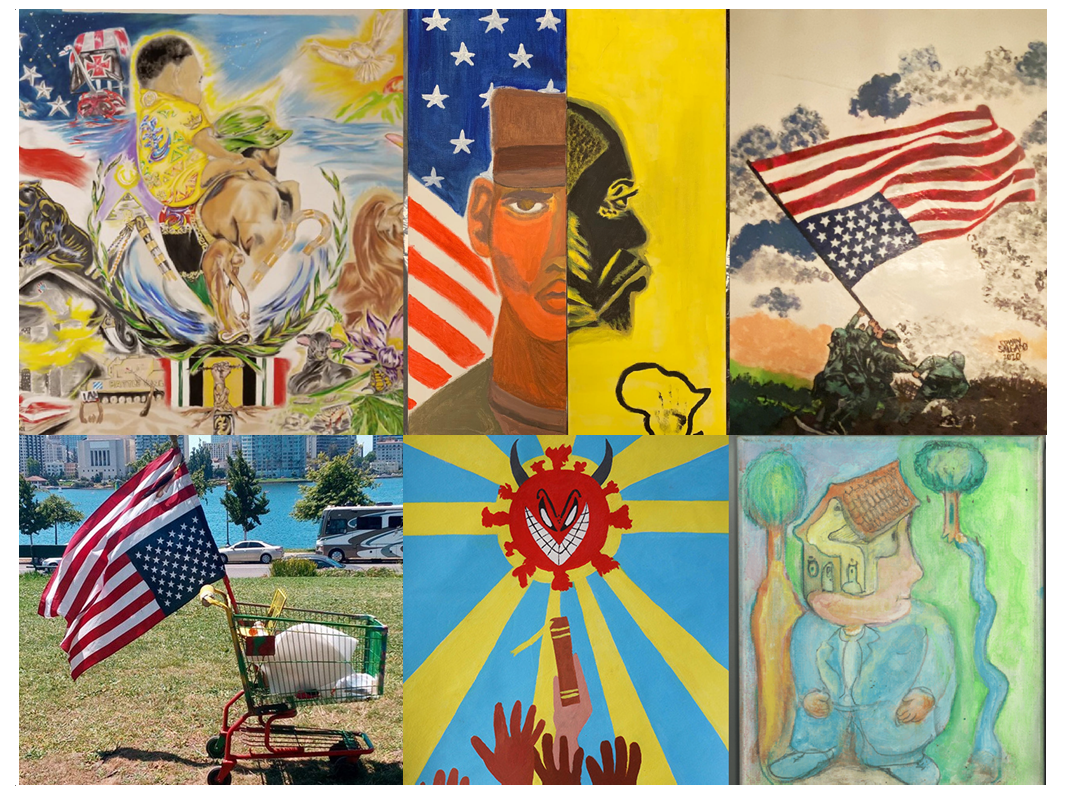
This exhibit was hosted at the Walt Disney Family Museum from November 2020 – June 2021 in San Francisco, CA.
From the words of Navy Veteran Artist: Amos Gregory
Veterans Voices : Painted realities represents another milestone in the creation of public artwork that I have been doing with my fellow veterans for over 10 years. Together, we have painted our stories upon border fences, on walls of dark alleyways, upon city streets and walls of abandoned buildings in rural towns. This artwork allows us to send our messages of understanding, transformation and peace to the rest of society.
What is now displayed in this exhibit represents the hopes, dreams, challenges of three distinct group of veterans: Rural based Veterans living in the physical outer reaches of our country, African American veterans living in the concrete world of U.S. cities, and deported veterans living in far away lands and speaking foreign languages such as in Mexico, Jamaica, Kenya and England.
These communities of veterans, of which I am a member of one, each have their own unique stories and cultures but one key bond that they share with the rest of America’s 22 million other veterans is that of the lifelong challenge with adjustment and care after military service.
From deported veterans advocating for their right to return home, to rural veterans and their struggle to find community care along the unpaved roads of their towns to African American veterans who suffer from everyday systemic racism is where the uniqueness of each community is highlighted.
What each community does share is the constant struggle for proper medical care, and having the experience military service constantly playing in our minds years after service.
Over the years of creating artwork with the community I have listened to stories of the Kosovo Genocide, artillery bombardments in Iraq, fire fights in Vietnam and so many others from the tents of homeless veterans, the homes of deported veterans living in Mexico to my very own stories which travel with me no matter where I go.
We all were American warriors, and as such, we will suffer the wounds caused by conflict in addition to the special circumstances we find ourselves in post-service.
We have learned to become the ultimate healers of ourselves. The work that we have been creating over the past 10 years is the culmination of a grassroots brainchild from within our own community. Designed by us for us. The rest of society also benefits for when we heal the society heals. We are your brothers, sisters, grandparents, the barber, the firefighter, the artist, the teacher. We represent all that America is… HOPE.
AFRICAN-AMERICAN VETERANS
"I feel like being a veteran is the greatest love letter you can give to your country."
Rebecca Browning, U.S. Army
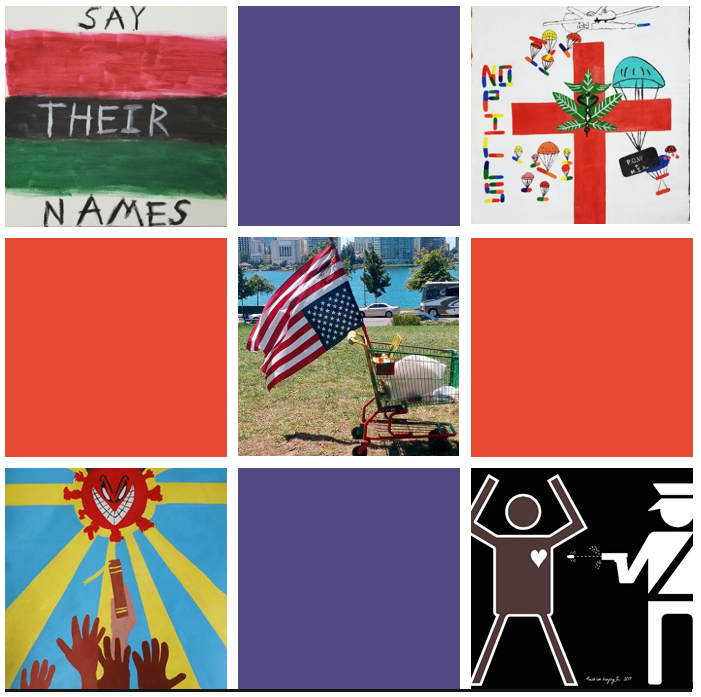
Rebecca Browning
U.S. ARMY
San Francisco, CA
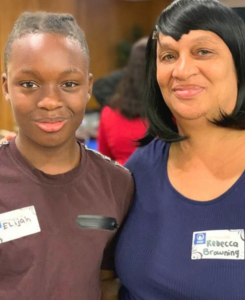
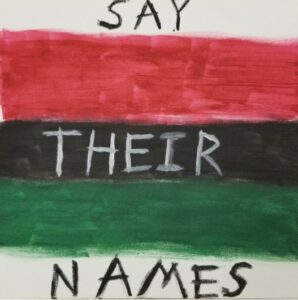
Acrylic paint on stretched canvas
12 x 12 inches
Courtesy of Veterans Alley
Bio: I served in the U.S. Army from 1987 to 1989. I got out, just before the first Iraq war. I feel like being a veteran is like the greatest love letter you can give to your country is like, you know, I love you so much that I want to serve.
What does freedom mean to you? Being able to walk down the street without getting looks, without my son being able to go out, without getting looks, without being kind of denied. Just being able to move around like a human and not being seen as three-fifths of a human.
How can we do a better job supporting veterans? As a veteran you're already dealing with battle trauma, psychological issues or whatever and there’s a lot of confusion. I got vocational rehabilitation so I can go to school and get my master's. My rehab counselor...was dismissive. I enrolled in community college. Our system never told me how to do it, who's going to pay for the books. I enrolled, but I didn't have any communication from the worker. So I withdrew. Three months later, I get this notice from the VA. You were overpaid for something and need their money back. In the system you can see I returned the payments. But when you live paycheck to paycheck and they pull a big chunk out of your check, that hurts. I was unable to pay rent and bills. It took about a month for them to sort it out. This situation needs to be streamlined, parts don't speak to each other. Veterans need help. Otherwise they get frustrated and give up.
Amos Gregory
U.S. NAVY 1988-1994
San Francisco, CA
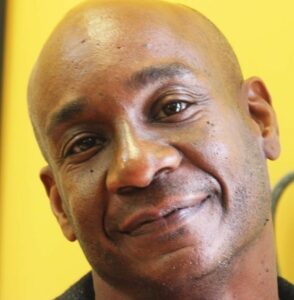
What was your idea of the military and your life before service? I joined the Navy. I was on submarines on a fast attack submarine during the collapse of the Soviet Union. Hunt for Red October...that was me. I was aware of the geo political stance at the time between capitalism and communism, and the United States versus the Soviet Union. I was at the tip of the spear during my service, I was a true believer---in the principles and ideas in our constitution, rights and freedoms, and of America being a liberating force throughout the world.
I served [in an] environment with many diverse people with so many different ideas. I was in the second wave of African- Americans on the submarine who were assuming more technical and leadership roles, which were previously excluded from us. We were serving in higher concentrated numbers in positions of authority and responsibility. On my first boat there was the old culture of people that were fading culturally and new folks challenging the status quo. It was stressful and you had to advocate without any tools. I didn't have the time to regret any of our actions, and must say that we were the great terrifying boogey man of the Cold War...a nuclear armed submarine.
Later life when you see the effect of your geo-political stance you begin to look at it from outside of the woods, more holistically. You realize your role in conflict and the very nature of its roots, and you try your best to ensure that it never happens again. When you are a 21 year old and you are part of a crew that has nuclear weapons on board, you are constantly thinking, if you get this order, do I have the conscience to do some crazy shit like that, right? At that time of my life the the answer was yes.
RURAL VETERANS
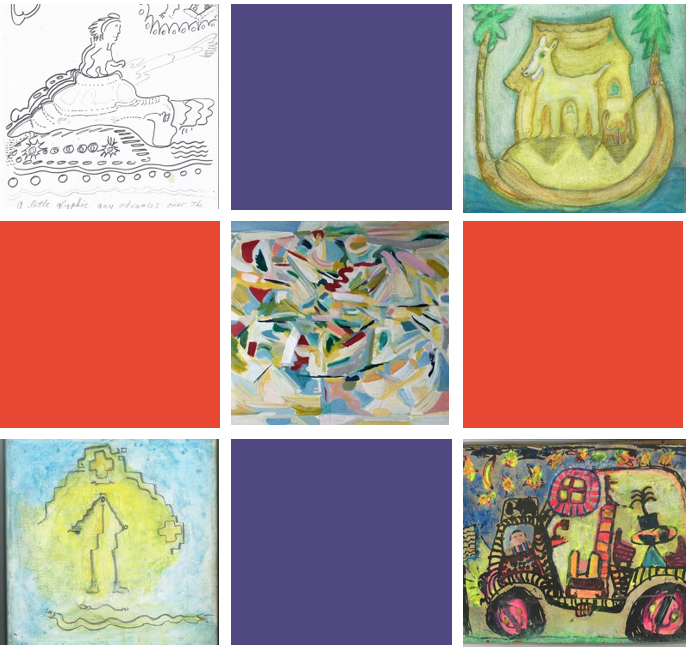
James Stephen "Steve" Wallace 1952-2020
U.S. NAVY
Humboldt County, CA
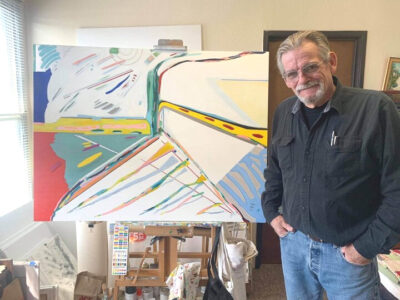
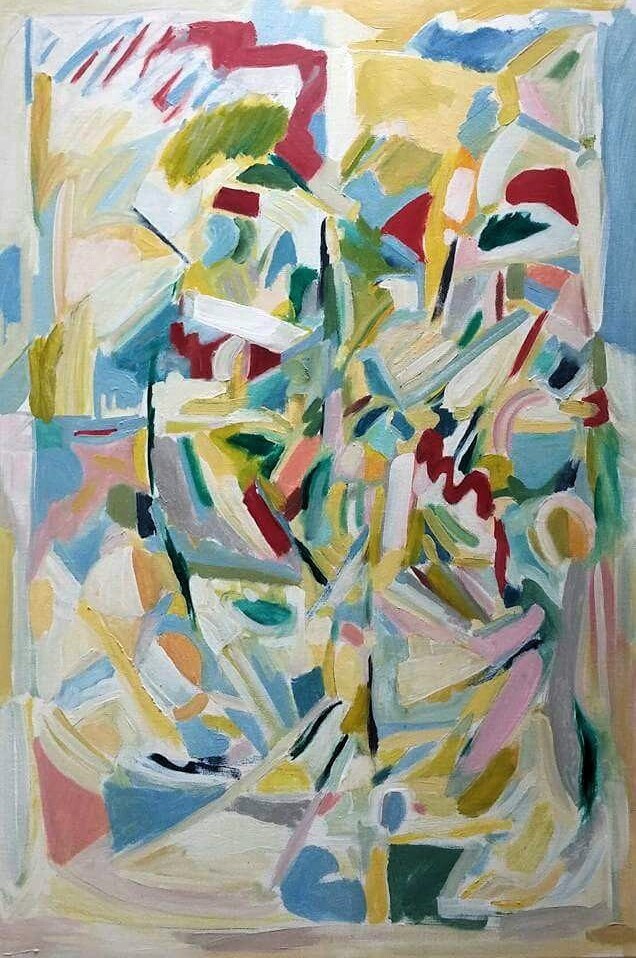
Acrylic paint on stretched canvas (framed)
48 x 36 inches
Courtesy of the Eureka VA Medical Clinic
Bio: Steve Wallace was introduced to Amos Gregory by the Eureka VA as a veteran artist interested in participating in this exhibition. Steve was a cherished member of the Eureka, Ca. VA clinic and his artwork has adorned the clinic and is part of their permanent collection. During his time working with our project Steve was a wonderful addition for he possessed a warm spirit and some serious art skills.
Steve’s passing came as a blow to our team of artists and serves as a reminder to us that tomorrow is not promised and to live it as fully as possible. That was Steve to us…
1 love, brother Steve. Rest In Power.
Scotty Burchill
U.S. ARMY
Eureka, CA
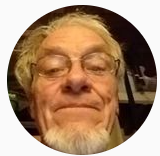
Bio: Scotty Burchill is a US Army veteran. A life long pacifist, who even while serving never drifted from his principles and beliefs. He lives in Eureka, Ca. where he is a prolific creator of artwork, incubates alternative solutions to the affordable housing crisis that grips the entire State of California. Scotty's work is simple and brilliant and offers a unique perspective of life in rural California. Scotty is the recipient of a Veterans Alley artistic grant and will be creating artwork upon Veterans Alley's wall.
DEPORTED VETERANS OF AFRICAN HERITAGE
"People don't realize Black people also get tied up in immigration. Being deported is like a scarlet letter here in Jamaica and there is less support for us here."
Jefferey Brown, U.S. Army
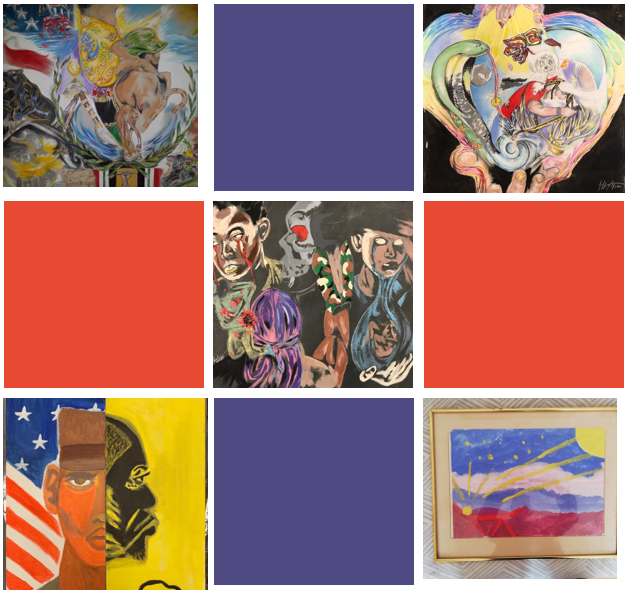
David Bariu
U.S. ARMY
Washington/Kenya
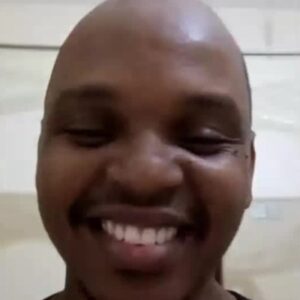
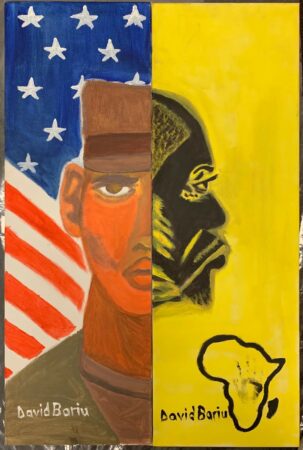
Acrylic on two stretched canvas panels
35.5 x 24 inches
Courtesy of the Deported Veterans Mural Project
Bio: I joined the U.S. Armed forces in 1999.I got honorably discharged from the Army because I was one of the FI Student Visa recruited students. This is a journey of a deported U.S. veteran based on the recruitment promises, serving in the military, becoming a vet. I expected from the military my GI bill, my VA benefits, my housing benefits to help my family in any way I could. Finish my education. That's what I wanted. They promised that since we came to the country legally [F1 students] we were able to join the military. In return, we'll get our education, GI Bill, and naturalized. That was just a story.
From what we understood he [the recruiter] was court-martialed in Fort Hood. He said he did that to get his points up. He had to get seventy points, so he had to recruit as much as he could. They found the recruiter to be on the wrong side. But they say ICE would finalize the naturalization of F1 students. I had to find my own lawyer to try to understand. We only got to the stage of the interview. ICE came through, canceled my interview. Saying they had unforeseen circumstances. I've called my lawyer. They didn't say anything. A few months after that they came to my place and sent me in.
Why did you join the military? I saw in the military core values, integrity, selfless service, loyalty. What I saw after was being ignored. You serve, but if you don't know where to go who to talk to you will be lost. That's what I saw. And I don't know if there should be a system where they help veterans who don't know what's going on. To be in tune with the processing of veterans. Help them in all they can. There’s a lot of PTSD, stress, a lot of homeless veterans.
What does your canvas represent? It represents a journey. The military one represents the vision I had of military integrity, loyalty, and civil service. That is what the flag behind me is what I represented. The yellow, black, and white represent who I am right now. The reality of what transpired. What I had to go through to see the next day. It's a small picture of Africa and the brains of my daughter. So it represents the journey. What I was going through at each moment.
Jefferey Brown
U.S. ARMY
New York/Jamaica
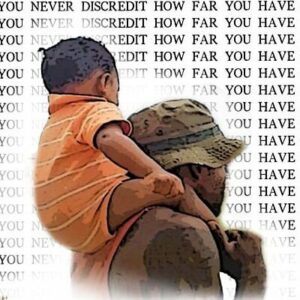
Bio: I served in the U.S. Army, 1st Battalion Field Artillery Regiment, 3rd Infantry Division in Fort Stewart in Savannah, Georgia. I drove a big tanker. I went to training, went to Kuwait, and then Iraq. It’s imperative that we find our collective core. Find our consciousness. We have to see the world as itself. A white man has to see a Black man with a noose on his neck the same way they see a Black man earn a scholarship to play football, see the deported veteran. We must see to create a consciousness and know right from wrong.
How is your life now right now? Justice needs to be done. People need to get consciousness. People don’t realize Black people also get tied up in immigration. Being deported is like a scarlet letter here in Jamaica and there is less support for us here. Elements of my Deportee status are even used by adversarial parties and blessings in the flesh of my first begotten.
Poem by Jeffery Brown:
"Army of One"
I went were you told me to go | Do you not love me anymore?
I did what you told me to do | Yet you say "I don't know you"
How could you? | After all these years
Blood, sweat and tears | You fed and cloth me
How dare you say that you don't know me | Were all those lies
you told me | Dreams you sold me
Be all you can be | Land of the free
But now I see | The only Army is me…and he
Rudi Richardson
U.S. ARMY
California/England
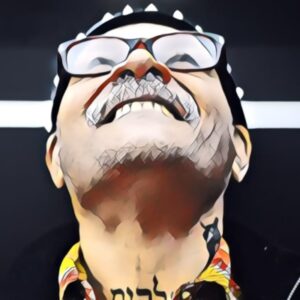
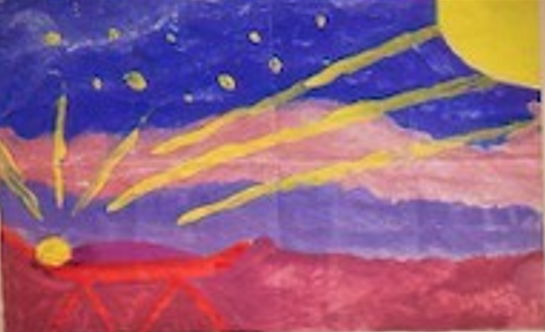
paint on paper
11 x 17 inches
Courtesy of the Deported Veterans Mural Project
Bio: I’m a deported veteran honorably discharged. I was given the same story that a lot of other people were given. When I initially joined the army, I was 17, so my parents had to sign me up. They had just told me I was adopted two weeks prior. So they brought all the German papers and asked the recruiter “what can we do to ensure that my son gets US citizenship?” The recruiter just said, you automatically become one, you know, once he's honorably discharged. When I was discharged from the Army, under the Vietnam era adjustment appointment program we could be fast-tracked into the federal government jobs without going through the regular processes.
Anyway, they hired me as a clerk. One day, I received a memo from the personnel office saying that I had to show proof of my citizenship. So automatically I thought everything was fine and I went to the personnel office, I showed him my DD214(discharge papers) and I told them what the recruiter said, I’m automatically a citizen. And they said that's not true.
They terminated me a week later because I failed to show proof of my citizenship. That’s when on a psychological level, emotional, I just fucking broke down. Here I am 21. My wife to be, carrying our first child, about to get married and everything just went array.
From a deported veterans perspective, I became a drug addict. And also at the same time, my bipolar disorder was untreated. Mental health? I didn't know what it was. I was hearing voices, hearing my name through the radio and I knew that something was wrong. But I was too afraid to tell anybody.
So I would work under the radar, different temporary jobs, corporate America. But at the same time I'm dealing with my addiction, dealing with this big hole in my soul in terms of I'm not a fucking citizen. My marriage fails. I'm a full blown addict now. I'm on the streets. I'm prostituting my sexualities all over the place. I don’t know who the fuck I am. I'm not giving a fuck. I'm going in and out of prisons, mental hospitals. Then I would get clean again and go up the corporate ladder and get that job making $40,000 a year and relapse back down on skid row. It's a vicious cycle.
I would get busted for petty theft and they’re saying they're gonna deport me. I just didn't believe that. I had no legal representation and no support when I went through deportation proceedings. They give me a one-way ticket to Frankfurt, Germany. I had a nervous breakdown.
The pivotal point for me was when I was homeless for 3 or 4 months in London, England. I dozed off in a church. A lady came by and put some money in my hand, gave me a hug, and a sandwich. Tears were just rolling. At that point I knew that I really had to stand on my own two feet and make it no matter what. I got clean and sober. I had a few relapses, I'm not gonna lie. But I built a charity and did some good work with the community. I did some community work in Turkey, Rome, France. For me, my salvation through the whole thing has been being of service to save my own ass.
From the 900 veterans deported, there’s at least half that were promised citizenship. The people that got lied to, need to come home or the government needs to get sued. I feel betrayed. I’d like to see America before I die. I’d like to see my grandchildren. I'd be happy with just visiting.
DEPORTED VETERANS OF LATIN HERITAGE
"We’re saying we deserve to be home because we’re American soldiers and the trauma we’ve experienced is because of our experiences in America and the military."
Alex Murillo, U.S. Navy
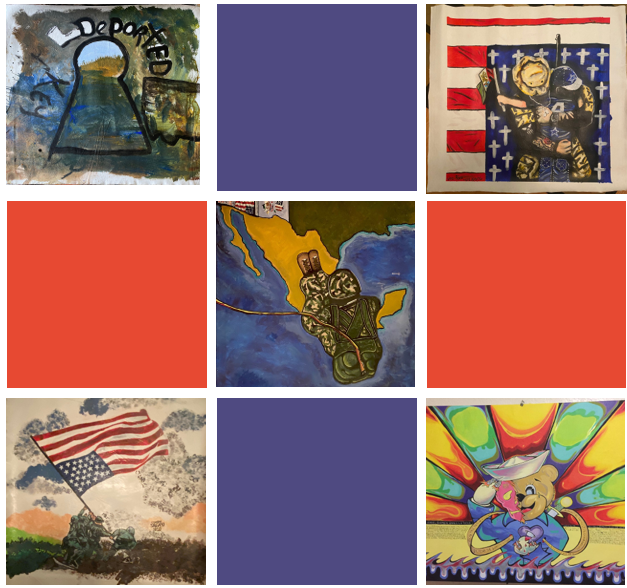
Alex Murillo
U.S. NAVY
Phoenix, AZ/Mexico
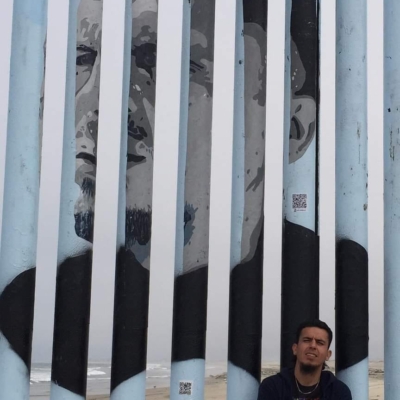
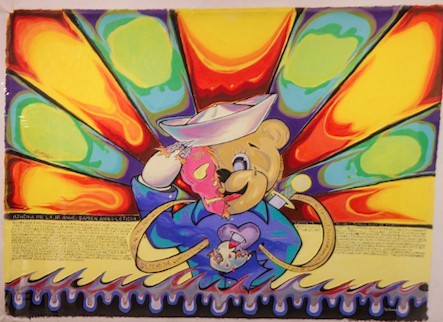
Acrylic paint on un-stretched canvas
35 x 48 inches
Courtesy of the Deported Veterans Mural Project
Bio: I’m from Phoenix, Arizona. I’m a Navy veteran. I’m currently deported to Mexico. I’m fighting to get home. I served out of high school in 1996. I served on USS George Washington with Squadron VS 32. I was an aircraft mechanic. I have four kids and I miss my family. All my family is back home. My service was for that, for my family, for my country. Now I find myself separated from them.
How was life after service? I was trying to live my life after serving is sometimes hard. I had trouble like many veterans do with self-medication. I ended up getting in trouble with cannabis, even though they’re making a lot of money now and its legal in many states. They charged me in 2009 and back then it was viewed differently. That doesn’t change the fact that I’m a Veteran, a U.S. soldier, and American. That’s part of the fight we’re in right now. We’re saying we deserve to be home because we’re American soldiers and the trauma we’ve experienced is because of our experiences in America and the military. My problems of self-medication were not given to me in Mexico. They we’re given to me in Mexico as a U.S. soldier. My identity and the way I grew up, the struggles I’ve been through are my struggles as an American. I didn’t know any other country. The reason I know another country now is because my country has exiled me to another country. We go and serve our country and come back with problems. We don’t get the help from VA from our country. We get in trouble and get kicked out. It’s unjust and Unamerican.
Cesar Nunez
U.S. Marine Corps
Los Angeles, CA
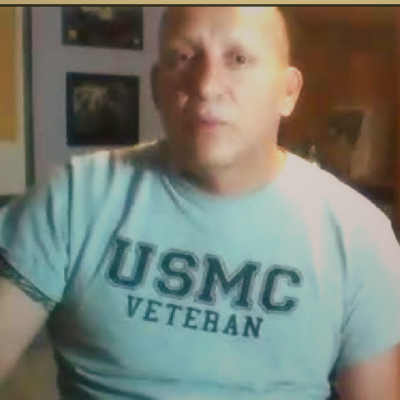

Photographic reproduction of mural painted on wall
Courtesy of the Deported Veterans Mural Project
I was born in Juarez, Mexico, immigrated to the US when I was around four years old. I grew up in Los Angeles. In 2012 I got deported. That's when I found out veterans could get deported and it changed my life. It's been eight years of struggle. I grew up without a father, with a single mother. The best thing about the Marines for me was I found my brothers and my sisters and my daddy's there. Everybody. Eight years ago they stopped me in Texas coming back from Costa Rica. I land and they asked me if I committed a crime in Mexico in 2012. The way they were interpreting the law, I was a criminal and a threat to the nation and I needed to be removed. I was detained from October 28th, 2012 to February 25th of 2013. Then I got deported to Mexico. I had to cross. I couldn't find a way to get back home. I ended up crossing that border on my own. It took me three days and four nights.
What does your art represent? The title is Lone Wolf Sounds-Off I'm the lone wolf that crossed the border. I came up with desert and road which represents I-10. I just grew up on those highways between Juarez and LA. The wolf represents me crossing that border. When I'm howling, I'm spreading the news of veterans getting deported. Each butterfly represents a name of one of those deported veterans. The moon is really meaningful to me, always my source of inspiration since I was a kid. I added a face, my wife. There's a little constellation near the moon, that's my constellation. The cactus it's interesting. When I was crossing that desert coming back undocumented I didn't have food or water. I found water than people leave behind, water drops. The most beautiful thing any human being can do for another human being. I wanted to thank that person. That's one of the hardest memories I have. The roadrunner represents the quickness of Congress to get away. We feel like we're a coyote chasing the roadrunner to get them to change the law. There's a piece of parchment on the feet of the roadrunner with numbers of bill submitted that never went anywhere.
Edwin Salgado
U.S. ARMY
Orange County/Mexico
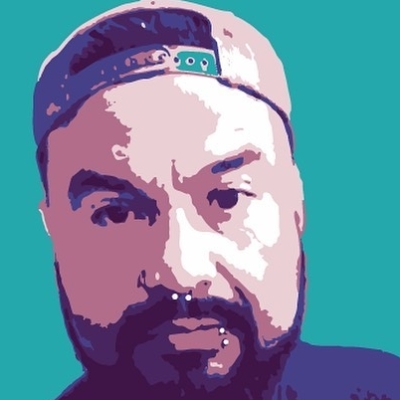
Bio: I served in the U.S. Marine Corps. I would like to thank USMC for teaching me how to survive. I'm proud of being able to survive deportation with the training they provided.
How did you imagine military life would be? The recruiter painted a pretty picture. They told me that if I went to boot camp and did my time, I'd end up with my own little house, married, a perfect life. I'd be happy.
How is life now after service? My reality consists of PTSD, depression, anxiety, substance abuse, and hypervigilance, memory loss, a few other things.
What does your canvas represent? It’s a picture that was taken of me and the smoke in the background represents the oil fields that were burned down in Iraq. It also represents the uncertainty of coming back home and not knowing what to do with yourself, the thought of war, the disability that a lot go through when we get back home. The people that we love don't know how to deal with us and a lot of the time that leads them to leave us or just to not be around us anymore.
It's something many people go through. It feeds your depression and PTSD but it also feeds into the whole I'm unlovable type of mentality and chaos.
Jimmy Caso
U.S. ARMY
Los Angeles, CA/Mexico
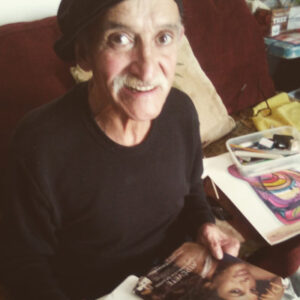
Bio: I served from July 5th, 1977 - December 1983. Honorable. I was on standby for the Iran Hostage Crisis. The month that Elvis Presley died. I want people to know the hurt and disappointment and impact of a country that I loved very much. I really feel hurt.
How was life after service? My dad was a Korea Drill Instructor. He was very strict and taught me how to fight. I used to fight, stand up to the bullies.
Even though I had problems with drugs way back then, I never asked anything from the VA anything. Even though I had a bunch of mental problems. But I am a lot better now.
It’s scary over here. You get thrown over here. A lot of people see my tattoos. Art has been my best friend, the love of my life. If it wasn’t for art, I would die.
Joe Rico
U.S. NAVY
Harligen, TX/Mexico
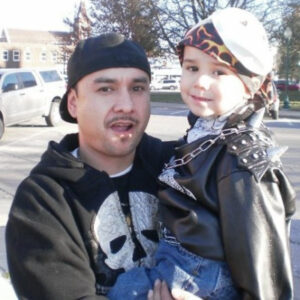
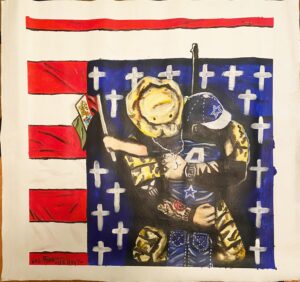
Acrylic paint on un-stretched canvas
33 x 31 inches
Courtesy of the Deported Veterans Mural Project
Bio: My name is Jose Rico I served in 2002-2006 and then three more years with the SeesBees SW3 for seven years.
What does your painting represent? I have two sons in the US. Pretty much that’s what my painting is representing. That I miss them.
How did you imagine your life like when you enlisted? Before the service, they painted a pretty good picture. I never thought I’d be living here in Tijuana/Rosarito, Mexico. But here I am. I thought that I would receive a lot more help from the government, the U.S. But no, here I am. Well that’s pretty much answered.
Mario Reyes Rangel
U.S. ARMY
East Los Angeles, CA/Mexico
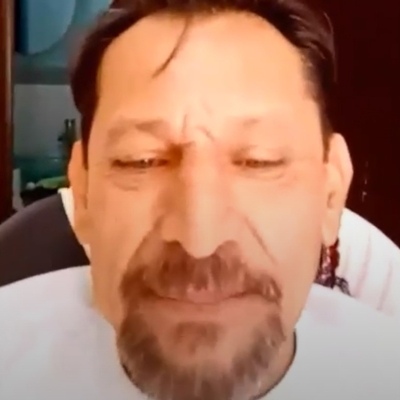
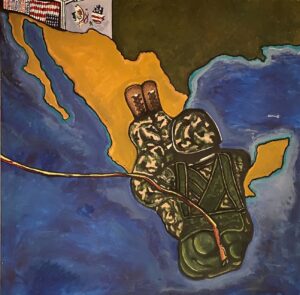
Acrylic paint on stretched canvas
30 x 30 inches
Courtesy of the Deported Veterans Mural Project
Bio: I was born Jalisco, Mexico and grew up in East LA. I joined the service in 1980, right out of high school. I served 4 years active and served with the 82 Air Borne, Expeditionary Group. I've never painted before. I've only drawn in pencil. We all got together and we expressed ourselves. I never painted and I think it came out pretty good. I'm ready for the next one. This experience has brought the best out of us.
How was life after service? Being a veteran is still part of a group that's never finished. From 9 to 14, I spent time gang banging, so I saw a lot. I probably already had PTSD, but when I came back from service that just carried on. I started kicking it with the homies and you can’t just leave the hood. I had a good job and good opportunities and I messed them up. I finally fell. I was having trouble with me and I didn’t even recognize it for years.
How is your life now right now? I’m happy. I have a good circle right here. I’m trying to get in better shape. I’m training for a boxing fight with a younger Marine. I want to instill that in younger people. Mexico is dangerous there are girls missing every day. I want to teach about self-defense, teaching them how to fight. I’m into that right now. I feel like I can influence kids and at least be a descent example.
